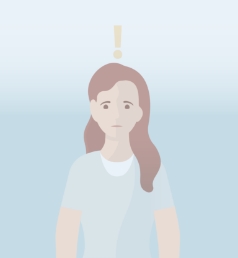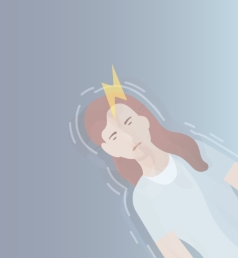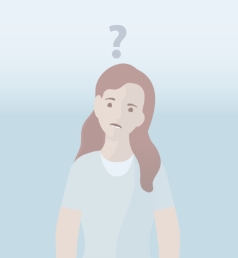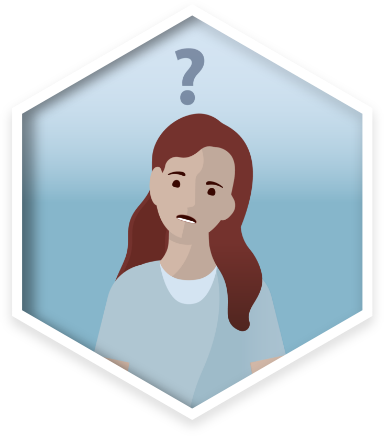Unique seizure stories, shared seizure concerns
Each person experiences the immediate and lasting effects differently
Discover how unique experiences with seizures can be
Explore the different events that have been reported during the phases of a seizure. What’s listed may not reflect all possible events with seizures. You may have experienced none, some, or all of the events included.

















Common seizure triggers include:
- Stress
- Time of day or night
- Poor or not enough sleep
- Illness with or without fever
- Prescription medicines
- Hormonal changes
- Hunger and dehydration
- Flashing lights
- Changes to daily anti-seizure medications
Sometimes there is no known or clear trigger for the seizure.
HELPING HAND
Remember to write down every time you experience a possible trigger, even if it doesn’t cause a seizure.




Some people experience a seizure aura, which can appear as:
- A sense that something has happened before (déjà vu)
- Feelings of oncoming doom, fear, and/or euphoria
- Changes to some of your senses (vision, hearing, smell, taste)
These are only some of the things that may happen during a seizure aura.
DID YOU KNOW…
While not everyone has them, seizure auras, which are also known as partial or focal seizures, are actually smaller seizures that may come before larger or more intense seizures.





Shortly after a seizure, a person may experience:
- Confusion, disorientation, and other feelings of “brain fog”
- Headache
- Feeling uneasy, depressed, or ashamed
- Pain, discomfort, or trauma from being injured during the seizure
- Loss of bowel or bladder control
There’s also risk of having another seizure.
WHAT IT MEANS
Brain fog can feel different to different people. One person may say it feels like they’re “floating on a cloud but in a bad way,” whereas another says it feels like they’re “moving through sand.”




Some effects can be long lasting and appear over time, including:
- Problems with memory, speech, or learning
- Long-term physical injury
- Difficulty with daily tasks that once seemed simple
- Less interaction with other people
- Worsening or more frequent seizures
DID YOU KNOW…
The lasting effects of seizures depend on the person. One person may say it feels like they’ve been “put back together all wrong,” while another may describe how they need more help from a care partner to act as a “memory bank” for certain information.
A diary can help you track your seizures and possible triggers so you can talk about them with your healthcare provider.
Many share the same general concerns about their seizures
You may be feeling worried about the effects of seizures, and that’s OK. You’re not alone
WHAT IT MEANS
It’s natural to have feelings of worry or distress, and it helps to share those feelings with your loved ones and those who support you.
People around you also worry about your seizures—many care partners have similar concerns for the people in their lives who have epilepsy.*
*These results are from a survey of 259 adults with epilepsy and 263 care partners of either an adult (160) or child (103) with epilepsy. Of the people with epilepsy surveyed, 72% were afraid of a seizure striking at any time, 54% were concerned about having a seizure in public, 64% were worried about permanent damage to their brain, and 68% were afraid of losing their independence.
How damage from uncontrolled seizures can happen
It’s important to know the risks of brain damage when seizures are not controlled
WHAT IT MEANS
Since the brain does so many things, damage to it may take many forms. Damage could show as stumbling over words, having difficulty learning new tasks, finding it harder to remember certain things, or many other effects.
Let your healthcare provider know about any issues you may be experiencing, no matter how trivial or embarrassing they seem.
Download a free set of appointment talking points that can help you with this discussion.

